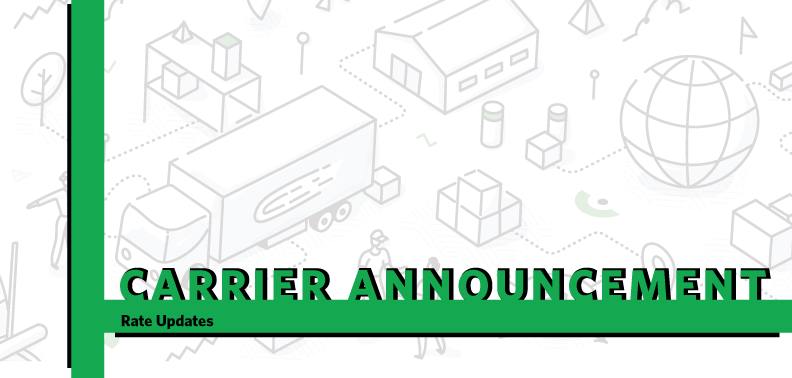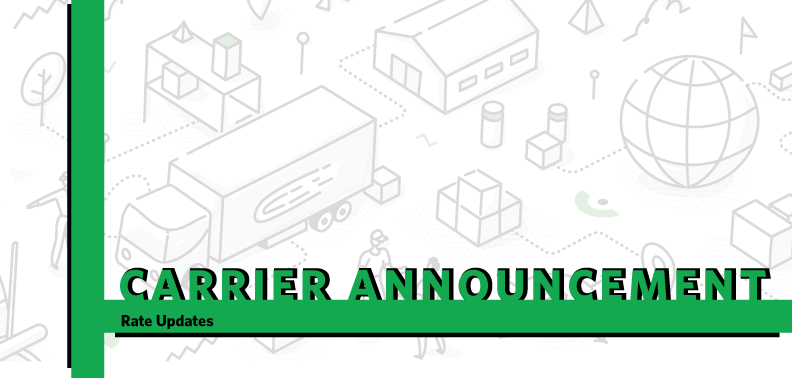Quality Data: Maximizing Technology in Small Parcel Shipping
Logistics technology has never been a more popular topic. The marketplace is filled with innovation, and the industry finally seems prepared to start taking advantage of it. Many early adopters and progressive companies already have, of course. But a lot of new small parcel shipping companies are finally making investments in quality logtech data or choosing service partners based on their ability to provide or integrate with their shipping systems.
Regardless of the type of logistics technology being discussed, and how practical their use may be today (is blockchain really a viable solution for the logistics industry yet?), an important thing that gets overlooked is how systems work together. Because there are so many different applications serving different functions, data interoperability is an increasingly important topic. And, central to interoperability is the cleanliness and usefulness of the data itself.
This is a topic discussed by Norm Pollock, CIO of Transportation Impact, on a recent episode of Let’s Talk Ship webinar. Here are some tips Norm for small parcel shipping companies presented during the conversation about data quality and ensuring that every shipper can maximize the usefulness of its technology investments.
- Focus on clean data, because a common roadblock to taking advantage of these new technologies is data quality. If there is garbage in, there’ll be garbage out. It’s a cliché, but it holds true with logistics data.
- It’s never too early to start thinking about data quality. Companies should start working on their data quality immediately, even if they don’t plan to use it for years. Historical data is almost always necessary to provide context in the present and future when data is being analyzed, so a little work now will provide a truckload of value down the road.
- For the same reason, timestamps are important. A company can’t go back and re-timestamp year-old data. So it’s important to think through those things now and make sure that your systems are starting to capture the correct data, so you’ll have what is needed, when it’s needed.
- Be aware that data matching is hard, so be prepared. Historically, we’re unable to match a full 20% of the data customers provide. Again, better planning would be helpful to enable better use of historical data.
- Systems (like a TMS) integration is important and is a neglected area. This is where data interoperability becomes important, because there is information in most companies’ shipping systems that has value up and down their supply chains.
- To help the movement of data, consider connecting through more modern technology like APIs. For example, it can be especially useful for shipping systems to connect data back to the order management system.
- Similarly, when possible connect to the ERP and take advantage of reference fields that can be populated with relevant shipping information.
The ability to use shipment data in day-to-day decision making and on a strategic basis has never been better. But the advantage it gives you depends on the quality of your data. A moderate investment in time, planning, and setup now will reap large dividends going forward.
At Transportation Impact we are experts at creating seamless data interoperability for freight and small parcel shippers. Contact us at info@transimpact.com to learn more.

Posts by Tag
- October 2018 (8)
- August 2018 (6)
- August 2019 (6)
- February 2020 (6)
- March 2020 (6)
- May 2020 (6)
- December 2020 (6)
- April 2019 (5)
- May 2019 (5)
- July 2019 (5)
- October 2019 (5)
- April 2020 (5)
- July 2020 (5)
- September 2020 (5)
- October 2020 (5)
- July 2018 (4)
- September 2018 (4)
- January 2019 (4)
- February 2019 (4)
- March 2019 (4)
- June 2019 (4)
- September 2019 (4)
- December 2019 (4)
- January 2020 (4)
- June 2020 (4)
- August 2020 (4)
- April 2018 (3)
- June 2018 (3)
- November 2018 (3)
- December 2018 (3)
- November 2020 (3)
- January 2021 (3)
- March 2018 (2)
- November 2019 (2)
- February 2021 (1)
- May 2021 (1)
8921 Crew Drive
Emerald Isle, NC 28594
(252) 764-2885
info@transimpact.com
Get In Touch!
 UPS (AGAIN) Updates a Portion of Current Peak Season Surcharges
What Small Parcel Shippers Can Expect in the Foreseeable Future
UPS (AGAIN) Updates a Portion of Current Peak Season Surcharges
What Small Parcel Shippers Can Expect in the Foreseeable Future



